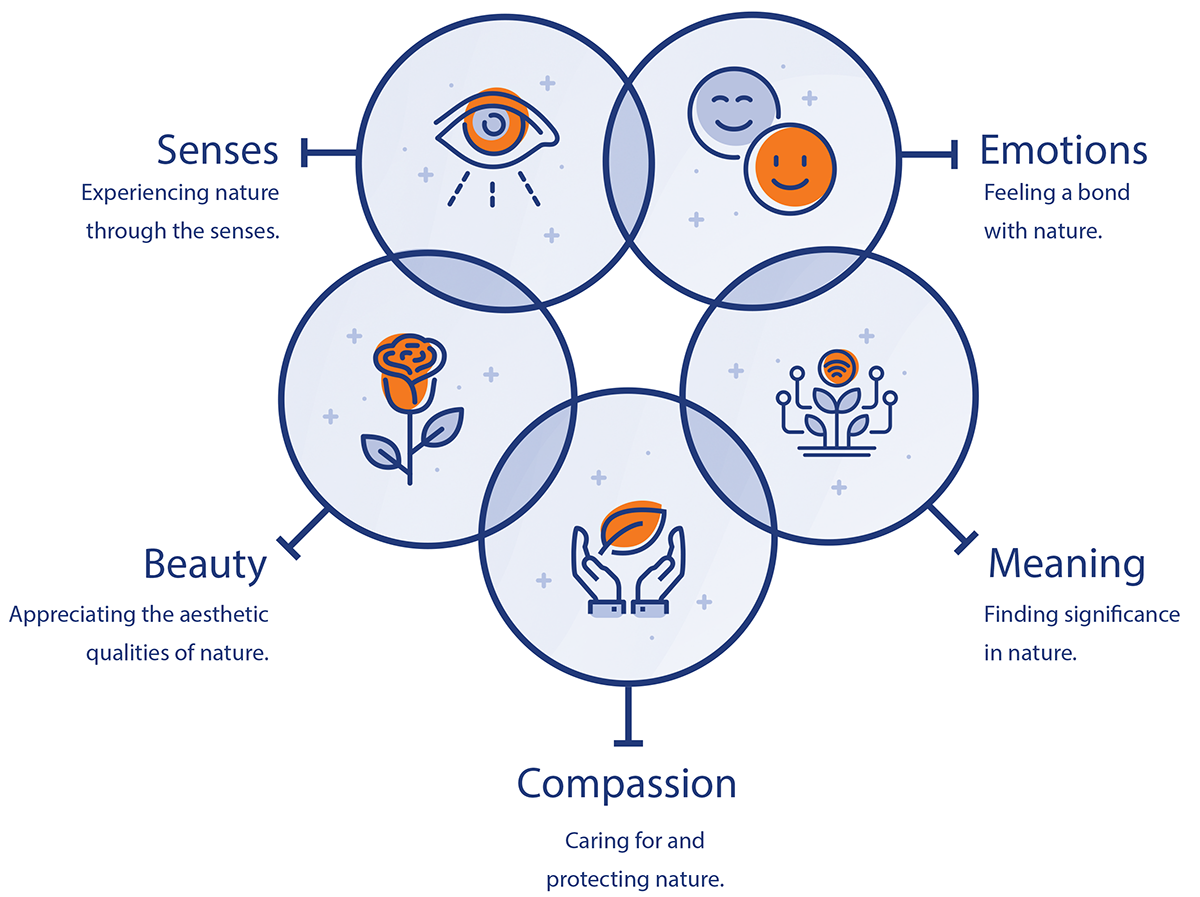“In every walk with nature, one receives far more than he seeks.”
— John Muir —
“In every walk with nature, one receives far more than he seeks.”
— John Muir —
SKILL
Nature has an undeniable impact on our wellbeing. Yet, time in nature has been on a steady decline since the 1980s, with people spending more time indoors and disconnected from nature. We need nature now more than ever. Originating from research on the restorative effects of nature, a Nature Prescription encourages you to spend at least 120 minutes per week outdoors — whether that’s a walk in the park, gardening or simply sitting under a tree. Doctors across the globe are now prescribing nature to improve mood, reduce anxiety and promote wellbeing. But the key isn’t just time outside — it’s about intentionally cultivating a deeper connection with nature to fully experience its benefits. And the best part? You don’t need to live near an ocean or national park to feel the effects — small doses of nature, or even noticing and incorporating nature into your indoor spaces, can make a big impact. Not all nature experiences look the same. The key is to find what works for you — the spaces, textures, sounds and sensory experiences that bring a sense of joy, serenity and connection.

Richard Louv
Richard Louv & Nature-Deficit Disorder
In his groundbreaking book Last Child in the Woods, Richard Louv coined the term “nature-deficit disorder” to describe the adverse effects of reduced exposure to nature—particularly among children. While nature-deficit disorder is not a known medical diagnosis, his work synthesized findings from over 60 scientific studies, highlighting that less time outdoors is linked to increased anxiety, depression and diminished cognitive functioning.
Louv’s research underscores that regular engagement with nature is essential, especially for children, to foster healthy development, improve emotional regulation and cultivate a lifelong connection with the natural world. His follow-up book, Vitamin N, offers practical strategies to help families and educators incorporate nature into everyday life.
SCIENCE
Time spent in nature promotes happiness, wellbeing and life satisfaction across diverse populations. Nature’s benefits are both psychological and physiological — reducing stress, boosting mood, improving heart health, restoring attention and more. For autistic individuals, increased time in nature is linked to improved sensory, social and behavioral functioning, focus and greater subjective wellbeing. Research indicates that at least 120 minutes per week is the dose of nature we need to thrive. If going outside to be in nature feels out of reach, research shows that simply seeing nature — through a window, a photograph, video or even indoor plants — can have positive effects.
Nature connectedness, one’s sense of their place in the natural world and connection to it, is linked to happiness — those with greater nature connectedness are happier. Interacting with nature in any capacity can boost positive emotions like awe, serenity and joy, strengthening our sense of connection to the world around us. Individuals with stronger nature connectedness are also more likely to seek out time in nature and engage in pro-environmental actions.
The 5 Pathways to Nature Connectedness
Research shows that there are 5 ways to intentionally cultivate nature connection and improve wellbeing:

BENEFITS
People who spend time in nature are more likely to experience:
-
-
- Increased prosocial behavior and cooperation
- Increased positive emotions like awe, serenity, and gratitude
- Enhanced self-esteem and resilience
- Increased social connection and empathy
- Decreased blood pressure, asthma, and risk of heart disease
- Enhanced focus and cognitive performance
- Higher levels of life satisfaction and wellbeing
- Reduced stress, depression and anxiety
-
Additionally, individuals with learning, intellectual and/or developmental disabilities who spend time in nature experience…
-
-
- Improved sensory, social, and behavioral functioning
- Increased attention and focus
- Enhanced emotional regulation
- Improved motor skills
- Greater subjective wellbeing
-

